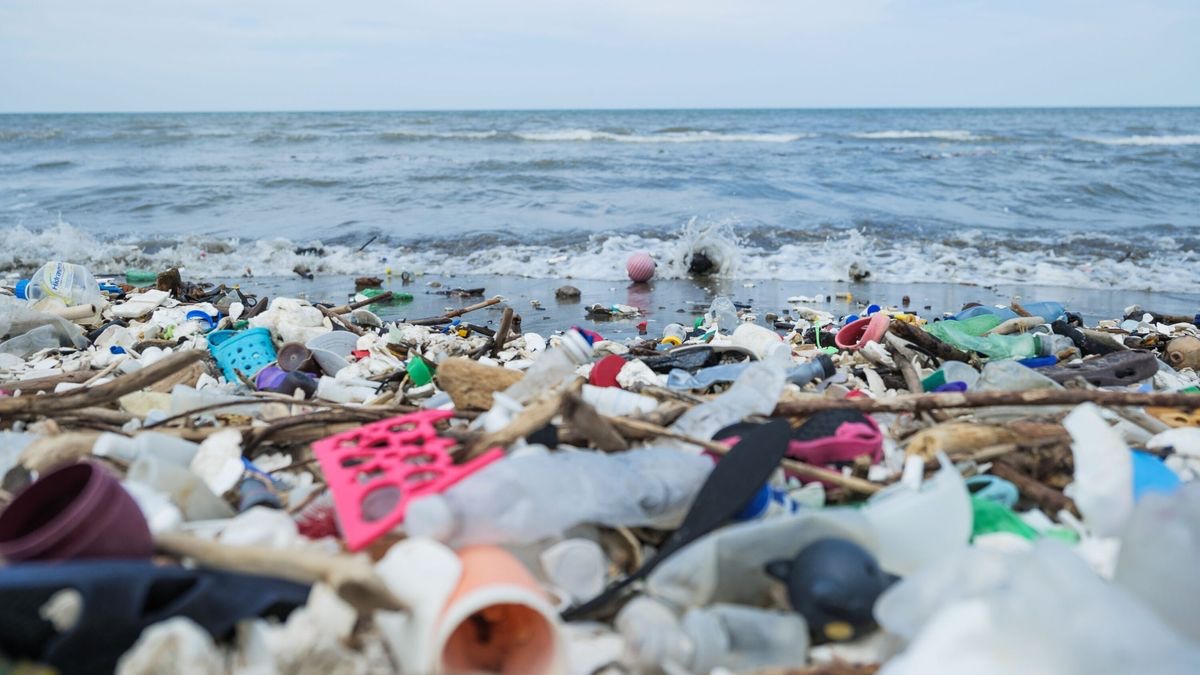In an era where the urgency of addressing the climate crisis and environmental issues looms large, innovative solutions are the need of the hour. A recent study published in Advanced Materials, led by researchers at Rice University in the US, promises just that – a technology that transforms waste plastic into clean hydrogen gas and high-purity graphene, all without generating carbon dioxide (CO2).
The project’s inception was marked by a simple yet groundbreaking question: “What if we turned waste plastic into something much more valuable than recycled plastic while capturing the hydrogen locked within it?” This query, posed by Kevin Wyss, a chemist at SLB (formerly known as Schlumberger) during his Ph.D. thesis, led to a transformative solution.
Hydrogen, often dubbed the green fuel of the future, offers substantial energy output per unit weight while producing only water as a byproduct. This eco-friendly characteristic makes it a sustainable alternative to conventional fossil fuels that emit copious amounts of CO2. Additionally, unlike batteries or renewable power sources, hydrogen can be rapidly refueled, a feature of particular interest to the automotive industry.
The Challenge of Hydrogen Production
Despite hydrogen’s eco-friendly reputation, a significant challenge remains: the predominant method of hydrogen production relies on fossil fuels, emitting substantial CO2 during a process known as steam-methane reforming. For every ton of hydrogen produced this way, 10-12 tons of CO2 are generated. Alternatives, such as electrolysis, are cleaner but more expensive, making them less competitive.
Plastic waste and low-carbon hydrogen production have long posed challenges that scientists have addressed separately. Recycling plastics, while possible, is often cost-prohibitive, leading to ongoing pollution. On the other hand, low-carbon hydrogen production methods are cleaner but expensive.
Flash Joule Heating: A Game-Changer
The solution proposed by Wyss and his team utilizes flash Joule heating, a cutting-edge technique that rapidly heats materials to extremely high temperatures. This process involves passing an electric current through plastic waste, swiftly converting it into graphene and hydrogen gas. Notably, this upcycling process requires no catalysts or solvents.
The benefits of this method are twofold. It not only addresses plastic waste but also produces valuable high-purity graphene, used in various applications, including strengthening materials, electronics, and more, with a current market value ranging from $60,000 to $200,000 per ton.
Wyss emphasizes that their approach reduces CO2 emissions significantly, producing 84% less CO2 per ton of hydrogen compared to conventional methods. This aligns with the US Department of Energy’s EarthShot Initiative, which seeks to make clean hydrogen cost just $1 USD per kilogram within the next decade.
While challenges in scaling up the process remain, the progress made in scaling graphene production offers hope. Universal Matter, a company focused on scaling the flash Joule heating process for graphene production, has achieved significant success in a short time.
The breakthrough technology showcased in this study represents a promising step towards a cleaner, more sustainable future. It offers a solution to both plastic waste and low-carbon hydrogen production, aligning with global efforts to combat climate change and reduce environmental impact. As we move forward, the path to a greener world may well be paved with innovations like these.
